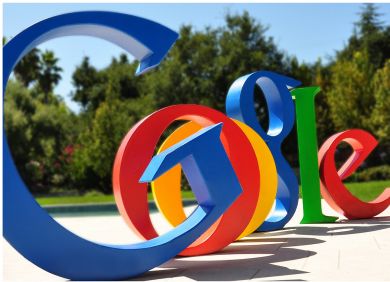

A settlement agreement between Google and the Federal Trade Commission (FTC) on antitrust allegations could be approaching, according to a newspaper report.
However the settlement might not include a key part of the US government’s concerns about Google’s business practices, according to a report by The Washington Post.
What’s potentially missing in the settlement is that it appears to not include discussions or language addressing one of the most serious charges against Google, that it “intentionally manipulates search results to harm competitors,” the Post reported.
This potential situation has left competitors and observers of the proceedings visibly angry, the story said.
Attorney Gary Reback, who represents several companies that have complained about Google’s practices in delivering search results, told the Post that any FTC settlement deal that doesn’t tackle the issue would bring powerful opposition.
“The buzzards are circling for that, and there’s just going to be massive resistance if they try to do that,” Reback told the Post. “If a settlement were to be proposed that didn’t include search, the institutional integrity of the FTC would be at issue.”
In October, a Reuters story reported on a very different result – that Google could be hit with an antitrust action by the FTC in connection with the ongoing antitrust concerns. An antitrust action would be far more serious but it could be avoided by any pending settlement.
In the October story, according to Reuters, four of the FTC’s commissioners became “convinced after more than a year of investigation that Google illegally used its dominance of the search market to hurt its rivals,” while one commissioner remained sceptical of that conclusion. “The majority of top decision makers at the FTC believe that an antitrust case should be brought against Google Inc, meaning the search giant could soon be headed into tough negotiations, three people familiar with the matter said.”
A settlement would certainly be a huge change in direction for the FTC’s investigation in comparison to an antitrust action.
Google was first notified of a “formal review” of its business practices in June 2011 by the FTC, after similar reviews began in Europe. At that time, the European Commission launched an investigation into the company’s search practices after vertical search engines such as Foundem, eJustice.fr and Microsoft’s Ciao complained the company favored its own Web services in search results on Google.com over theirs. They argued that this put them at a significant competitive disadvantage in the market.
Google has faced similar accusations in the United States from Texas State Attorney General Gregg Abbott, who asked for reams of info on Google’s ad pricing, shopping search and the ranking of Websites in search results and ad listings.
The initial FTC review in 2011 began after the agency heard complaints from Microsoft, Expedia, TripAdvisor, Yelp and other Websites that Google promotes its own Web services above those of competitors.
Google denied all such allegations at that time, noting that its search algorithms analyse Website quality and popularity based on links for placement as part of its PageRank system.
In July, Google reached a record $22.5 million (£14.3m) settlement with the FTC to resolve charges that Google bypassed Apple Safari browser privacy settings that blocked cookies for their users. The settlement was criticised by the Competitive Enterprise Institute, an industry group, as “a dangerously overbroad precedent that will chill Internet innovation and hurt online startups,” the Institute said in a statement at that time.
The FTC charged that for several months in 2011 and 2012, Google placed a certain advertising tracking cookie on the computers of Safari users who visited sites within Google’s DoubleClick advertising network. It charged that Google placed the cookies on consumers’ computers in many cases by circumventing the Safari browser’s default cookie-blocking setting.
Placing the cookies on the computers of Safari browsers violated the terms of an October 2011 settlement between Google and the FTC over deceptive practices related to the launch of Google Buzz, the late unlamented original attempt by Google to compete with Facebook in the social media space. Google later abandoned Buzz and went to work on its successor, Google +, which launched in June 2011.
In April, the Federal Communications Commission fined Google $25,000 (£15,580) after finding the company “deliberately impeded and delayed” an investigation into how it collected data for Google Street View, a technology featured in Google Maps and Google Earth that provides a panoramic view from positions on streets across the world.
Are you a Google expert? Take our quiz.
Originally published on eWeek.
Apple fined 150m euros over App Tracking Transparency feature that it says abuses Apple's market…
OpenAI to release customisable open-weight model in coming months as it faces pressure from open-source…
Samsung's Bespoke AI-powered fridge monitors food to create shopping lists, displays TikTok videos, locates misplaced…
Huawei sees 38 percent jump in consumer revenues as its smartphone comeback continues to gather…
In world-first, China approves commercial flights for EHang autonomous passenger drone, paving way for imminent…
Microsoft closes down IoT and AI lab it operated in Shanghai tech district in latest…